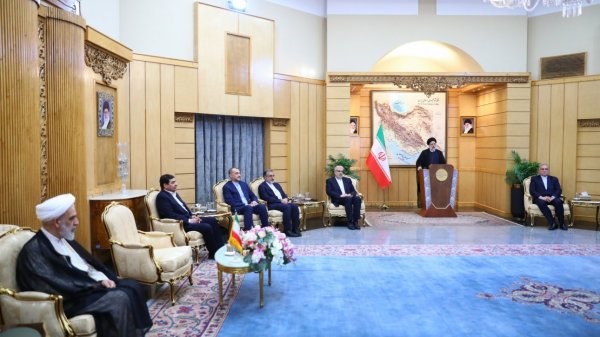As heavy air pollution from the Canadian wildfires blankets much of the United States, there is another country contributing to the air pollution problem.
A new report released this spring says that China permitted more coal power plants in 2022 than at any time in the last seven years despite its pledge at the Paris Climate Conference. That is an average of two new coal power plants per week! According to Global Energy Monitor and the Centre for Research on Energy and Clean Air (CREA) “The continued addition of new coal power capacity implies insufficient emphasis on overcoming the power system and … perpetuate[s] dependence on coal. The worst-case scenario is that the pressure to make use of the newly built coal power plants and prevent a steep fall in utilization leads to a moderation in China’s clean energy buildout, and/or the promotion of energy-intensive industries to consume the electricity.” Despite President Xi Jinping’s stated commitment, Chinese actions indicate the country is not prepared to follow through on its climate pledge. We can expect to see a major increase in China’s CO2 emissions by the end of this decade. The CCP leadership has repeatedly shown that it cannot be trusted at its word, even among its own allies. What Beijing says and what it does within its policy framework are not the same, whether it concerns the climate, global economics, or military activity in the South China Sea.
Last week US Secretary of State Tony Blinken was in Beijing for talks aimed at reducing tensions between Beijing and Washington. It appears he made little to no progress. China’s expanding military deployments in East Asia are continuing unabated despite Beijing’s attempt to publicly portray its naval movements as defensive. US Secretary of Defense Lloyd Austin and China’s Defense Minister Li Shangfu were in Singapore for a conference earlier this month, where Li arrogantly demanded signs of “mutual respect” from the United States. China tried pushing Washington to limit its naval patrols near China and halt all arms sales to Taiwan. Reuters this week quoted a senior US defense official as saying that “since 2021 China had declined or not responded to more than a dozen requests to talk with the Pentagon and nearly 10 working-level engagement requests.” This is despite Chinese claims it is cooperating and that Washington is the one being obstructionist. The facts bely the reality of the bilateral political-military environment.
Events in Russia last week may have shaken the CCP leadership in Beijing, however, it did not improve its belligerent, untrustworthy behavior. Before Putin invaded Ukraine, China announced a “no limits” partnership with Moscow. Russia is one of China’s few allies. Yet even within this special “partnership” China continues to play by its own rules. On Monday a top US official said, “the weekend uprising… unsettled Beijing’s cloistered leadership, and some analysts inside and outside China have started to question whether Beijing needs to ease off its political and economic ties to Moscow,” according to Reuters. Apparently, there are limits on the “no limits” relationship when it is convenient for Beijing. Chinese businesses scurried to halt orders of auto parts and other machinery destined for Russia, uncertain about what was happening in Moscow. Now it appears Beijing is trying to figure out how to back even further away from the partnership to avoid new global sanctions and condemnation. The Chinese government is labeling the recent events Russia’s “internal affair.” Even with its closest ally and “dear friend” Putin, Beijing cannot be trusted to do what it says.
In a Saturday, June 24, commentary in Chinese-language Singaporean newspaper Lianhe Zaobao, Professor Yang Jun of Beijing’s China University of Political Science and Law, called for China to directly support Ukraine to avoid being “dragged into a quagmire of war by Russia.” He added that “With the development of the current situation and the trend of the war…(China) should further adjust its position on Russia and Ukraine, make its attitude clearer, and decisively stand on the side of the victors of history.” This may be the most honest statement to come from China in recent history. China’s leadership is not loyal to its allies or its own people. If the litmus test in the Ministry of Foreign Affairs in Beijing is to “stand on the side of the victors” then the rest of the world needs to wake up, “adjust,” and recognize the modus operandi and self-serving characteristics of China as a very dangerous, nuclear-armed state.
Daria Novak served in the U.S. State Dept.









